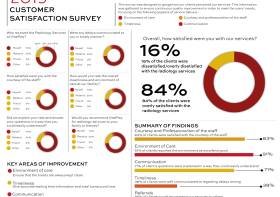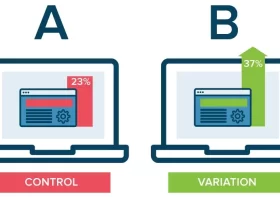Predictive Analytics for Marketing Campaigns

In today’s digital age, marketing has transformed significantly, with businesses increasingly relying on data-driven insights to make informed decisions. Predictive analytics, a powerful tool in the realm of marketing, offers profound opportunities for businesses to optimize their marketing campaigns and drive desired outcomes. This article will delve into the concept of predictive analytics for marketing campaigns, highlighting its benefits, the technology behind it, and how it can revolutionize the way businesses approach their marketing strategies.
Understanding Predictive Analytics
Predictive analytics refers to the process of utilizing historical data, statistical algorithms, and machine learning techniques to predict future outcomes with a high degree of accuracy. In the context of marketing campaigns, predictive analytics aims to forecast customer behaviors, identify patterns, and anticipate trends, enabling businesses to make proactive marketing decisions and derive actionable insights. By analyzing vast amounts of data, businesses can gain a comprehensive understanding of their target audience, uncover hidden patterns, and optimize their marketing strategies for maximum impact.
The Benefits of Predictive Analytics in Marketing
Predictive analytics offers numerous benefits for businesses in the tech industry when it comes to optimizing marketing campaigns:
1. Enhanced Targeting
With predictive analytics, businesses can segment their audience more precisely by understanding their preferences, behaviors, and purchasing patterns. This level of granularity enables businesses to tailor their marketing campaigns with personalized messaging and content, thereby increasing the chances of engagement and conversion.
2. Improved Customer Acquisition and Retention
By leveraging predictive analytics, businesses can identify potential customers who are more likely to convert and create targeted campaigns to acquire them. Additionally, predictive analytics helps identify customers who are at risk of churning, enabling businesses to implement retention strategies and increase customer loyalty.
3. Optimal Marketing Budget Allocation
Predictive analytics enables businesses to allocate their marketing budgets more efficiently. By identifying the marketing channels, campaigns, and strategies yielding the highest returns on investment, businesses can optimize their spending and maximize the impact of their marketing efforts.
4. Proactive Decision-Making
Predictive analytics provides businesses with valuable insights into future market trends and customer behaviors. Armed with this information, businesses can make proactive decisions such as adjusting marketing strategies, launching new products, or entering new markets at the right time to gain a competitive advantage.
The Technology behind Predictive Analytics
Predictive analytics is powered by sophisticated technologies and algorithms that enable businesses to transform raw data into actionable insights:
1. Data Collection and Integration
The process begins with collecting data from various sources such as website analytics, customer databases, CRM systems, and social media platforms. This data is then integrated to create a unified, comprehensive dataset that can be used for analysis.
2. Data Cleaning and Preparation
To ensure accuracy and reliability, the collected data is cleaned and prepared by removing duplicates, handling missing values, and standardizing formats. This step ensures that the analysis is based on high-quality data, yielding accurate predictions.
3. Statistical Modeling and Algorithms
Predictive analytics employs a range of statistical modeling techniques, such as regression analysis, classification algorithms, decision trees, and cluster analysis. These algorithms analyze the data to identify patterns, correlations, and relationships that can be used to make predictions.
4. Machine Learning
Machine learning algorithms play a crucial role in predictive analytics, as they enable the system to learn from historical data, adapt to new information, and continually refine predictions. By leveraging these algorithms, businesses can make accurate predictions based on evolving data patterns.
Revolutionizing Marketing Strategies with Predictive Analytics
As predictive analytics becomes more sophisticated and accessible, businesses in the tech industry can revolutionize their marketing strategies in the following ways:
1. Personalized Marketing
With predictive analytics, businesses can create highly personalized marketing campaigns tailored to individual customers. By understanding customer preferences, past behaviors, and interests, businesses can deliver targeted messages and offers, significantly enhancing customer engagement and conversion rates.
2. Customer Lifetime Value (CLV) Optimization
Predictive analytics helps businesses identify customers with high lifetime value, enabling them to focus their marketing efforts on retaining and nurturing these valuable customers. By analyzing past purchase history, engagement levels, and demographics, businesses can maximize CLV and allocate resources more effectively.
3. Dynamic Pricing Strategies
Predictive analytics allows businesses to implement dynamic pricing strategies by analyzing market demand, competitor pricing, and customer behavior. By accurately predicting price elasticity, businesses can optimize their pricing structure to maximize revenue without compromising customer satisfaction.
4. Marketing Channel Optimization
By leveraging predictive analytics, businesses can identify the most effective marketing channels for reaching their target audience. This analysis helps optimize marketing spend by channel, ensuring that resources are allocated to the channels with the highest conversion rates and return on investment.
Conclusion
Predictive analytics has emerged as a game-changing tool for businesses in the tech industry, providing valuable insights and transforming the way marketing campaigns are executed. By harnessing the power of predictive analytics, businesses can enhance targeting, improve customer acquisition and retention, optimize marketing budgets, and make proactive decisions vital for staying ahead in the competitive market. As technology continues to evolve, predictive analytics will play an increasingly significant role in shaping future marketing strategies and driving business growth.

